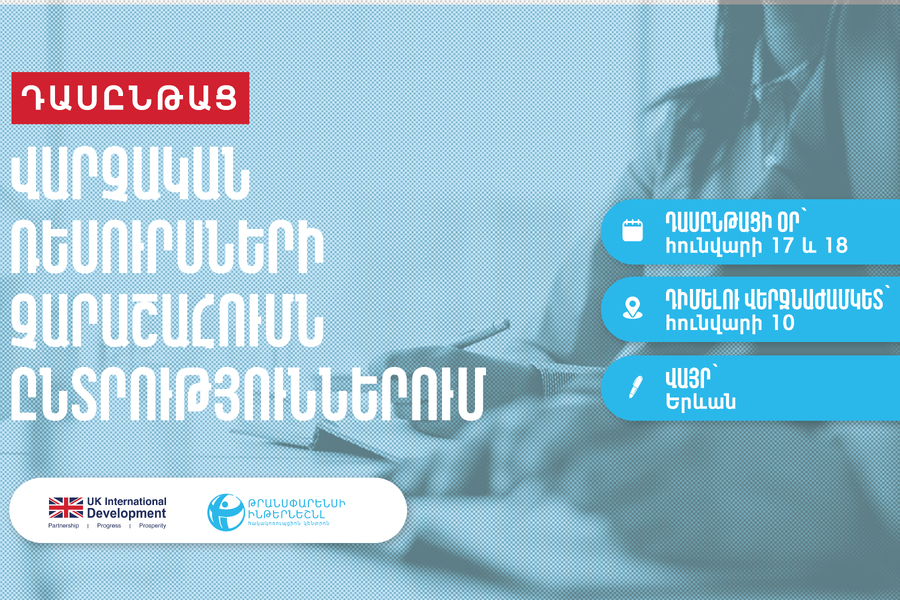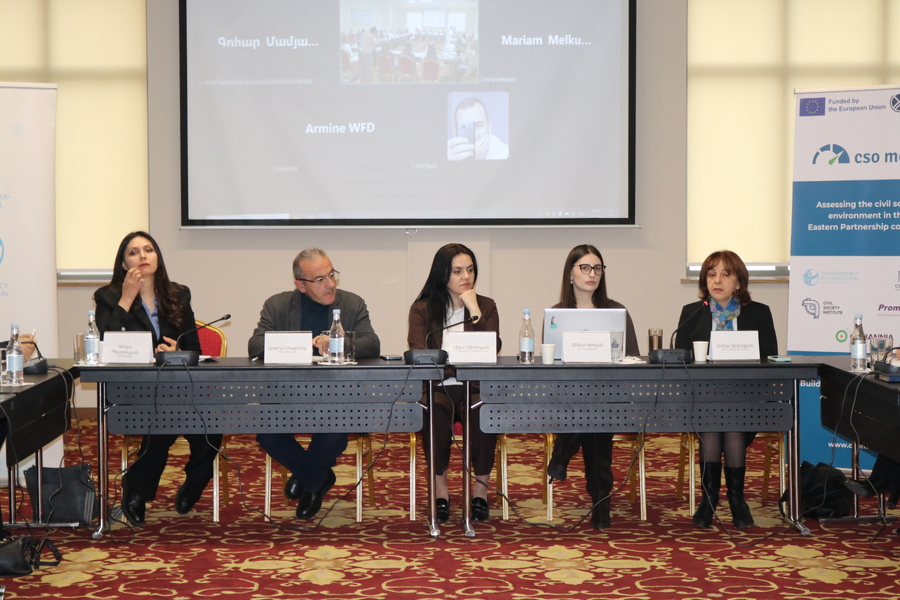Statement on the International Anti-Corruption Day
Since 2018 Armenia has made significant progress measured by international indicators in terms of effectiveness in fighting corruption and in development of democracy. According to the “Countries in Transition” 2020 report by the Freedom House, Armenia’s CPI is at its best throughout the history, starting from 1996.[1] According to the Democracy Index 2019 report by Economist Intelligence Unit (EIU), Armenia has improved its standing in 17 categories, rising from 103rd place in 2018 to 86th place, moving from authoritarian country category to a group with hybrid regimes.[2] As a result, out of 180 countries in the world Armenia from previous 105-113th places moved to 77-79th with a lower level of corruption.[3] In 2019 the Corruption Perceptions Index (CPI) has registered the most notable positive shift in the last 15 years since proclamation of the fight against corruption in Armenia.
Transparency International states that "despite the positive developments, conflicts of interest, non-transparent and non-accountable actions in the public sector continue to be seen as obstacles in the fight against corruption in the country. Improvement of political integrity will take time and resources, while increasing public confidence towards law enforcement is a crucial first step to ensure restraints and balance between the branches of government to increase effectiveness of anti-corruption measures."[4]
Unfortunately, the Armenian authorities deferred implementing reforms, failing to form proper systems in various areas thus wasting a large amount of public trust gained through the revolution and elections. The year 2020 has brought additional challenges that seriously jeopardized the achievements of democracy and the fight against corruption.
The major events of the year, including COVID-19 Pandemic, the clashes with Azerbaijan on the northern border of Armenia in mid-July, the war unleashed by Azerbaijan and Turkey on September 27 in Artsakh and on the eastern-southeastern border of Armenia, and the post-war internal tensions, suspended the envisaged amendments, i.e. the agenda for the Constitutional amendment, anti-corruption and judicial-legal measures, including the completion of the Corruption Prevention Commission, the formation of a fact-finding group, the fight against corruption crimes, and the recovery of illegally acquired assets.
The above-mentioned events have fully revealed the existing managerial and systemic problems in Armenia exposing both the issues rooted for decades under the previous government, as well as the malpractices under the current leadership and the consequences conditioned with its ineffective human resource policy, professional incompetence, shortsighted and autocratic decisions. Furthermore, various structures of the government operated in a non-transparent and non-inclusive manner creating accountability gaps in the state procurement, expenditures from funds and special accounts in the time of the pandemic and the war.
In the light of unstable peace, shattered security, weakened sovereignty, broken economy, failed institutions, desperate society, and lost public trust, instead of immediately analyzing leadership failures of different years, re-evaluating present roles, repenting, awakening, speaking to each other, mitigating tensions, giving in, mobilizing, seeking joint solutions, taking actions to promptly restore and strengthen the state, both – representatives of the government and the opposition largely simplify the problems and the political speech, spread hatred, accuse each other thus manipulating the public emotions and deepening the political crisis, anarchy and hatred in the country. In this perilous situation, it is indisputable that the parliamentary majority failed to assume responsibility and counterbalance the executive, as well as serve as a representative body and communicate with the public.
Under the present circumstances, it is imperative to immediately reduce the tension in the society, taking steps within constitutional regulations framework to restore the broken trust in state institutions. The achievement of this goal implies acknowledgement of its own responsibility and making difficult decisions by the parliamentary majority, creation of guarantees for accountable and professional management, organization of comprehensive measures to strengthen the country's social, military, civil, economic and information defence capabilities, and creation of solid foundation for effective diplomacy for Artsakh issue.
Both political forces - the present government and the opposition, should realize the gravity of the situation, their own responsibility in the context of the threats facing the statehood and sovereignty of Armenia, and hence be honorable enough to put the interests of the Republic of Armenia above their private and narrow goals.
[1] https://freedomhouse.org/sites/default/files/2020-04/05062020_FH_NIT2020_vfinal.pdf
[2] https://www.eiu.com/topic/democracy-index; https://www.panorama.am/en/news/2020/01/23/Armenia-Democracy-Index/2227463
[3] https://www.transparency.org/en/cpi/2019/results/arm#details, https://transparency.am/storage/CPI2019_results_am.pdf?v=2
[4] https://images.transparencycdn.org/images/2019_CPI_Report_EN_200331_141425.pdf, https://transparency.am/storage/CPI2019_regional_map_en.pdf







